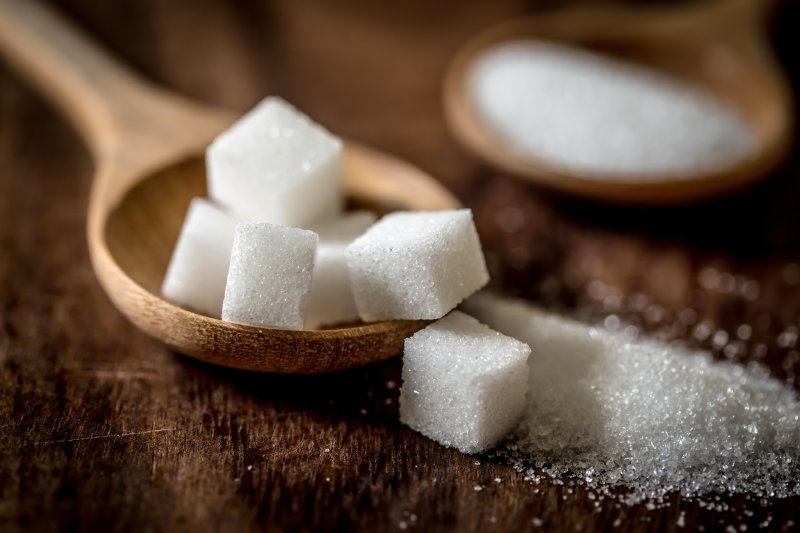
You’ve likely heard your dentist talk about how sugar impacts oral health in Castle Rock. As you envision candy, cookies, pies, and cakes as the main culprits, you may not realize many other foods also contain sugar. But just how bad is it, and do you need to completely remove it from your diet? Before you start making any drastic changes, read on to learn why sugar can be harmful to your teeth and gums and what you can do to better protect your smile.
The Impact of Sugar On Your Teeth
When consuming foods that contain sugar, it’s not the actual sucrose that does damage to your enamel, the outermost layer of your teeth. However, it can serve as a breeding ground for bad bacteria, which form harmful acids that break down and demineralize this protective layer. As a result, tooth decay can develop as well as gum disease. This is why it’s imperative that you brush and floss your teeth regularly to minimize your risk and keep bacteria and acids from attacking your teeth.
Of course, your pearly whites are not the only areas of your mouth that can be negatively impacted by sugar. You can also be at risk for gum disease. If bacteria begin to attack your soft oral tissues, they may become red, inflamed, and begin to bleed. If left untreated, gum pockets will form and trap even more bacteria and food particles, resulting in advanced periodontitis. Your bone and teeth will begin to deteriorate, and the infection can enter your bloodstream. This can cause you to develop problems throughout the body (i.e., brain, heart, gut, lungs, kidneys).
Should All Sugar Be Avoided?
To know which sugars are fine to eat and which ones you should avoid, keep this mind: Refined and processed sugars will lead to tooth decay, gum disease, and cavities. These are found in the most popular and common foods and beverages (i.e., candy, chips, soda, acidic sports drinks, dried fruit, honey). However, artificial sugars (i.e., xylitol) can be beneficial in lowering your risk for cavities. Of course, you’ll need to consume in moderation, but this is why many dentists recommend sugar-free chewing gum or mints if you’re prone to snacking.
You might also try incorporating nuts, fresh fruits, vegetables, and cheese. While they do contain sugar, they are beneficial at strengthening tooth enamel, improving gum health, and “brushing” away any food particles that remain on your teeth.
It’s important to remember that eating a cookie now and then will not be harmful to your oral and overall health. You simply need to remember to maintain an optimal oral hygiene routine at home. In doing so, you’ll avoid the potential pitfalls that often come with the consumption of sugar.
About the Author
Dr. L. Blaine Kennington knows maintaining a healthy diet takes diligence and an understanding of how food can positively or negatively impact your mouth and body. If you are struggling to reduce how much sugar you are consuming on a day-to-day basis, contact our office at (360) 703-9092. Dr. Kennington and his team will be happy to evaluate your oral health and discuss ways to improve your at-home oral habits as well as your daily diet.
